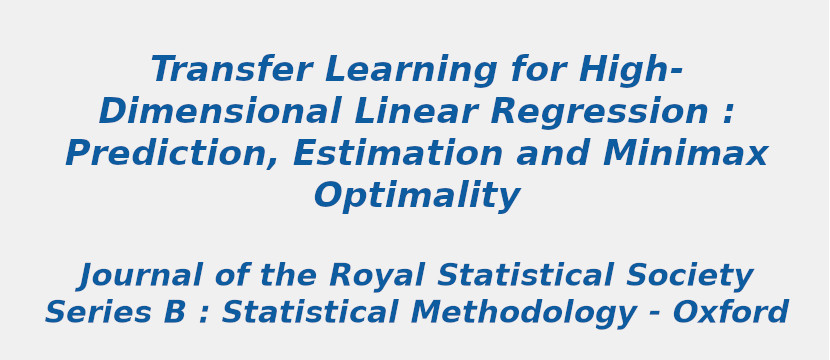Research Area: Machine Learning
This paper considers estimation and prediction of a high-dimensional linear regression in the setting of transfer learning where, in addition to observations from the target model, auxiliary samples from different but possibly related regression models are available. When the set of informative auxiliary studies is known, an estimator and a predictor are proposed and their optimality is established. The optimal rates of convergence for prediction and estimation are faster than the corresponding rates without using the auxiliary samples. This implies that knowledge from the informative auxiliary samples can be transferred to improve the learning performance of the target problem. When the set of informative auxiliary samples is unknown, we propose a data-driven procedure for transfer learning, called Trans-Lasso, and show its robustness to non-informative auxiliary samples and its efficiency in knowledge transfer. The proposed procedures are demonstrated in numerical studies and are applied to a dataset concerning the associations among gene expressions. It is shown that Trans-Lasso leads to improved performance in gene expression prediction in a target tissue by incorporating data from multiple different tissues as auxiliary samples.
Keywords:
Auxiliary studies
Data aggregation
Domain adaptation
GTEx data
Multitask learning
Q-aggregation
Author(s) Name: Sai Li,T. Tony Cai,Hongzhe Li
Journal name: Journal of the Royal Statistical Society Series B: Statistical Methodology
Conferrence name:
Publisher name: Oxford Academic
DOI: 10.1111/rssb.12479
Volume Information: Volume 84
